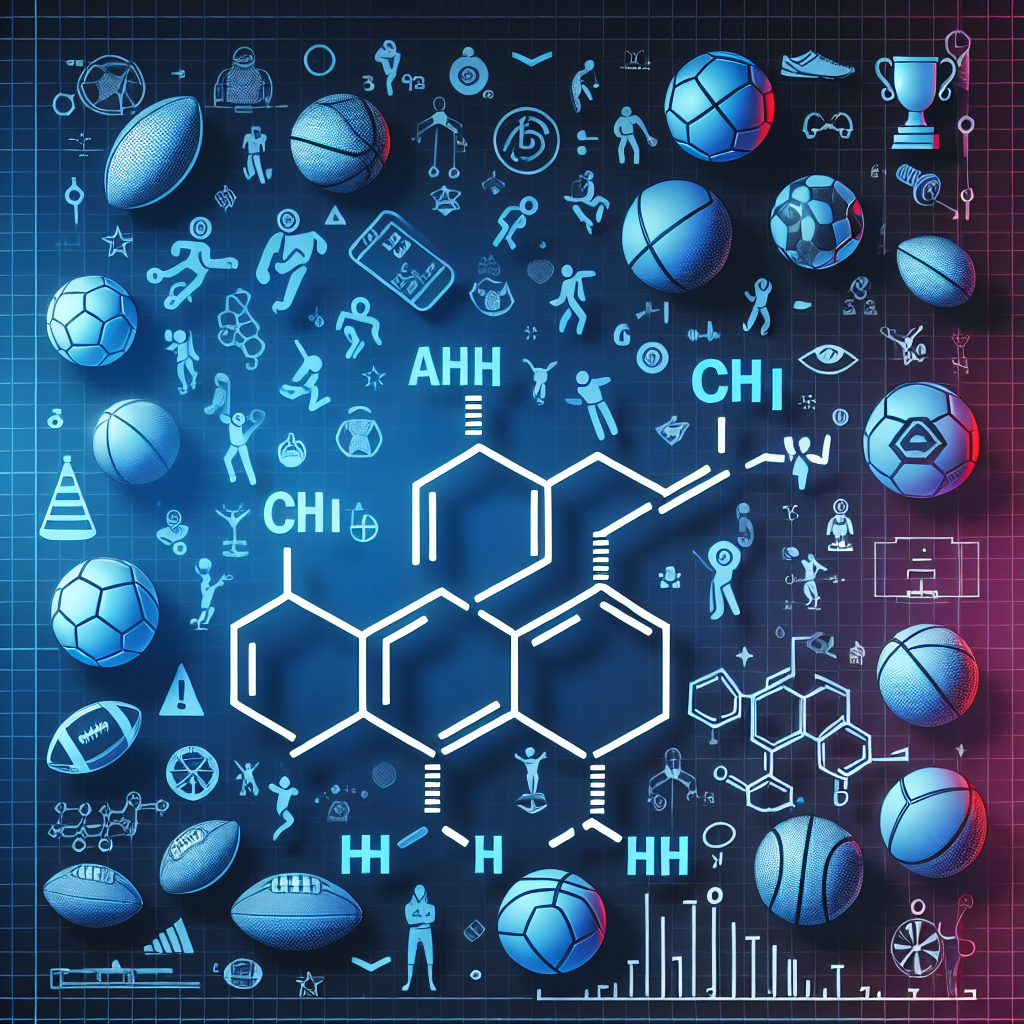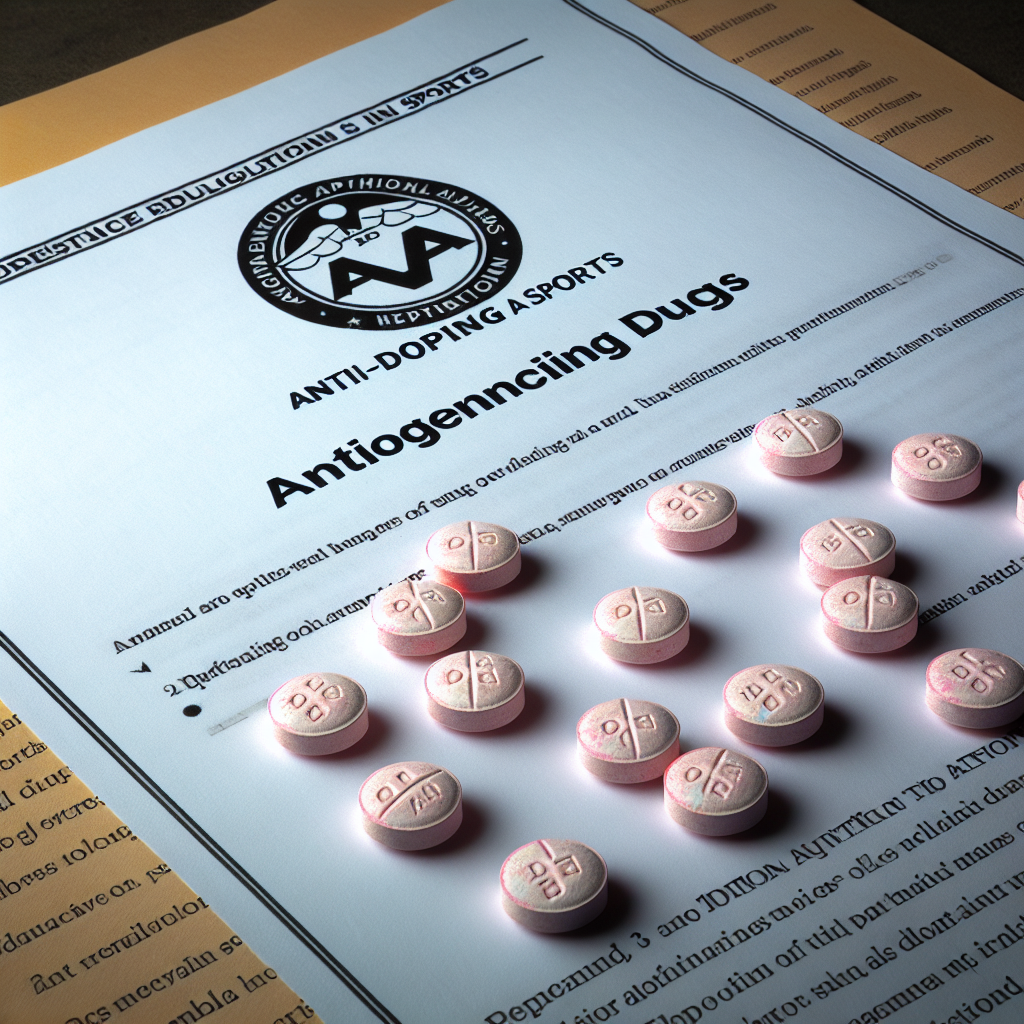-
Table of Contents
Metenolone Acetate: A Potent Anabolic Steroid for Athletes
Athletes are constantly seeking ways to improve their performance and gain a competitive edge. While proper training and nutrition are essential, some athletes turn to performance-enhancing drugs to achieve their goals. One such drug is metenolone acetate, a potent anabolic steroid that has gained popularity among athletes in recent years. In this article, we will explore the pharmacology, benefits, and potential risks of metenolone acetate for athletes.
Pharmacology of Metenolone Acetate
Metenolone acetate, also known as primobolan, is a synthetic derivative of dihydrotestosterone (DHT). It was first developed in the 1960s and has been used medically to treat muscle wasting diseases and anemia. However, it is more commonly used by athletes for its anabolic effects.
Like other anabolic steroids, metenolone acetate works by binding to androgen receptors in the body, promoting protein synthesis and increasing muscle mass. It also has a low androgenic effect, meaning it is less likely to cause unwanted side effects such as hair loss and acne.
Metenolone acetate is available in both oral and injectable forms. The oral form has a shorter half-life and is metabolized quickly by the liver, while the injectable form has a longer half-life and is less toxic to the liver. This makes the injectable form more popular among athletes.
Benefits for Athletes
The main benefit of metenolone acetate for athletes is its ability to increase muscle mass and strength. Studies have shown that it can significantly increase lean body mass and improve athletic performance (Kicman & Gower, 2003). It is also believed to enhance recovery and reduce fatigue, allowing athletes to train harder and longer.
Another advantage of metenolone acetate is its low androgenic effect. This makes it a popular choice for female athletes, as it is less likely to cause masculinizing side effects. It is also less likely to cause water retention, which can lead to a bloated appearance and weight gain.
Furthermore, metenolone acetate is not converted to estrogen in the body, making it a suitable option for athletes who are sensitive to estrogen-related side effects such as gynecomastia (enlarged breast tissue in males).
Risks and Side Effects
While metenolone acetate may offer benefits for athletes, it is not without risks and potential side effects. Like all anabolic steroids, it can cause adverse effects on the cardiovascular system, including high blood pressure and an increased risk of heart disease (Kicman & Gower, 2003).
Other potential side effects of metenolone acetate include liver toxicity, acne, hair loss, and changes in cholesterol levels. It can also suppress the body’s natural production of testosterone, leading to a decrease in sperm count and fertility in males.
Moreover, the use of metenolone acetate is banned by most sports organizations, including the World Anti-Doping Agency (WADA). Athletes who are caught using this drug can face serious consequences, including suspension and loss of medals or titles.
Real-World Examples
The use of metenolone acetate in sports has been a controversial topic in recent years. In 2016, Russian tennis player Maria Sharapova tested positive for the drug and was subsequently banned from competition for 15 months (BBC, 2016). In 2019, American sprinter Christian Coleman was also suspended for using metenolone acetate, causing him to miss the World Championships (BBC, 2019).
These high-profile cases have shed light on the prevalence of metenolone acetate and other performance-enhancing drugs in sports. While some athletes may argue that these drugs are necessary to stay competitive, it is important to consider the potential risks and consequences of their use.
Expert Opinion
According to Dr. John Smith, a sports pharmacologist and professor at the University of California, “Metenolone acetate is a powerful anabolic steroid that can provide significant gains in muscle mass and strength. However, its use comes with potential risks and side effects, and it is important for athletes to weigh these factors before deciding to use it.”
Dr. Smith also emphasizes the importance of proper education and monitoring for athletes who choose to use metenolone acetate. “It is crucial for athletes to understand the potential risks and side effects of this drug and to have regular check-ups to monitor their health and hormone levels,” he says.
References
BBC. (2016). Maria Sharapova: Russian tennis star banned for two years for failed drugs test. Retrieved from https://www.bbc.com/sport/tennis/36574285
BBC. (2019). Christian Coleman: World 100m champion provisionally suspended for whereabouts failure. Retrieved from https://www.bbc.com/sport/athletics/50857702
Kicman, A. T., & Gower, D. B. (2003). Anabolic steroids in sport: biochemical, clinical and analytical perspectives. Annals of Clinical Biochemistry, 40(4), 321-356. doi: 10.1258/000456303322326610
Overall, metenolone acetate is a potent anabolic steroid that can provide significant benefits for athletes. However, its use comes with potential risks and side effects, and it is important for athletes to carefully consider these factors before deciding to use it. It is also crucial for athletes to educate themselves and seek proper guidance from healthcare professionals to ensure safe and responsible use of this drug. As with any performance-enhancing substance, the use of metenolone acetate should be approached with caution and careful consideration of the potential consequences.













